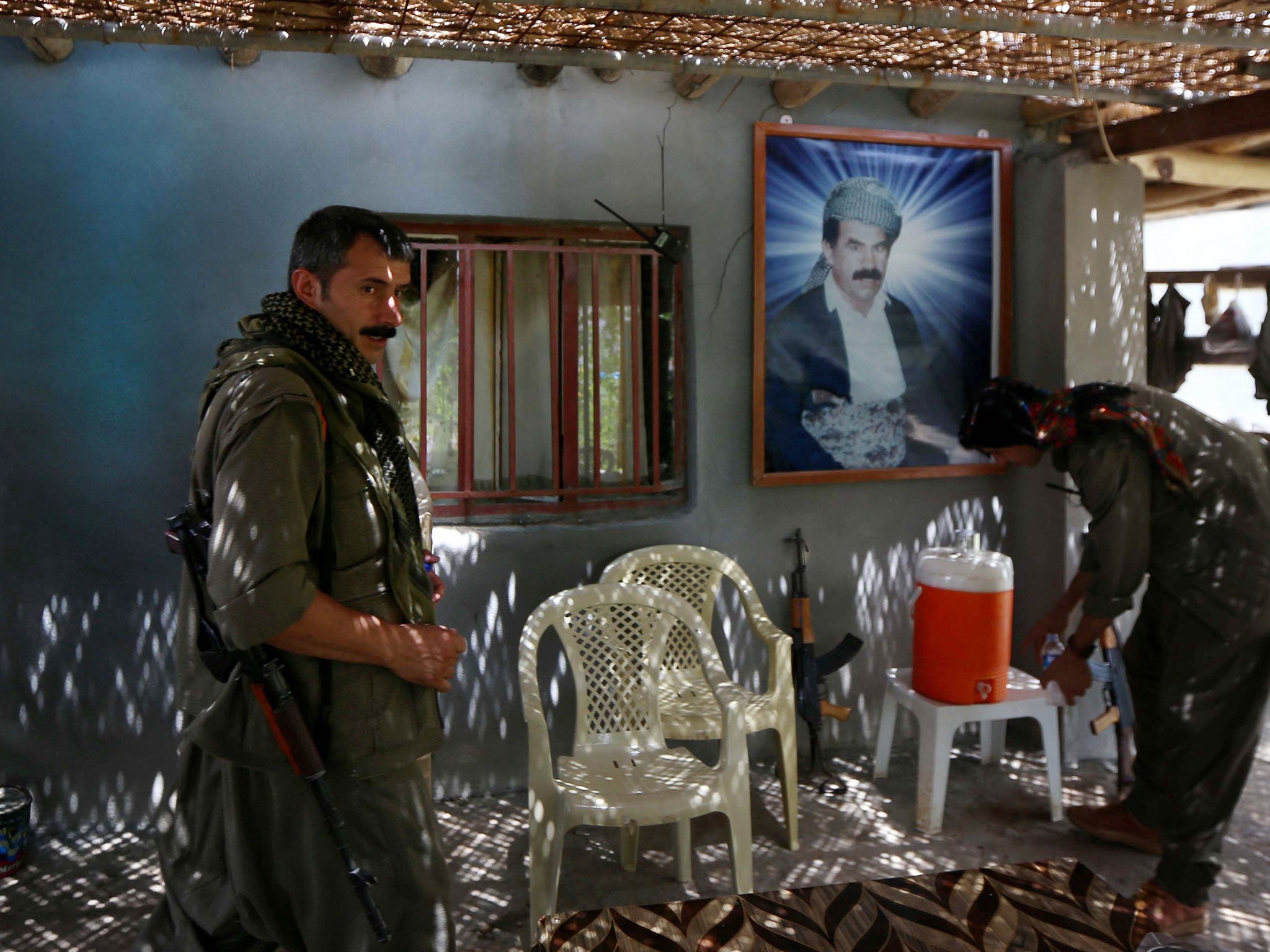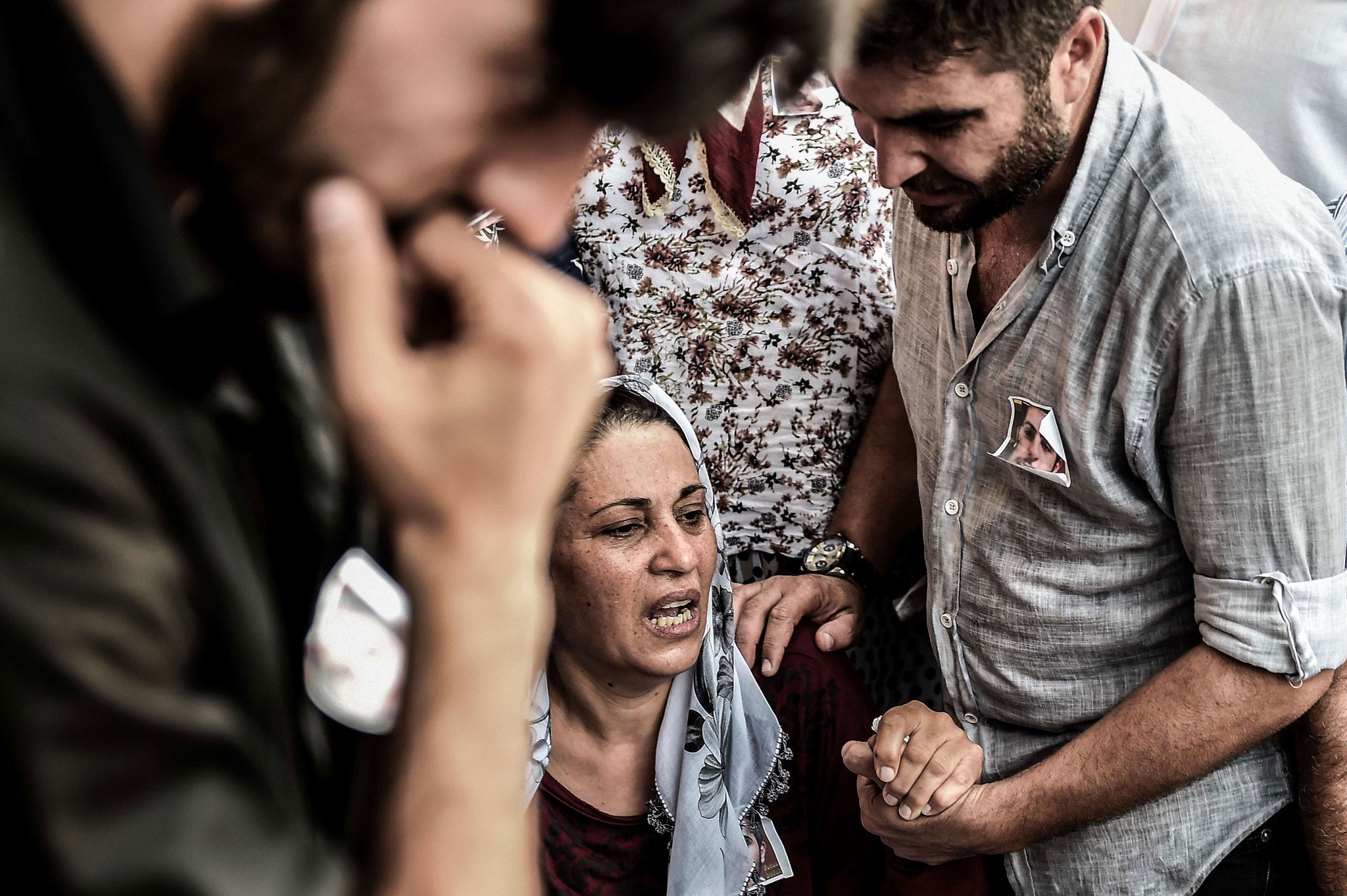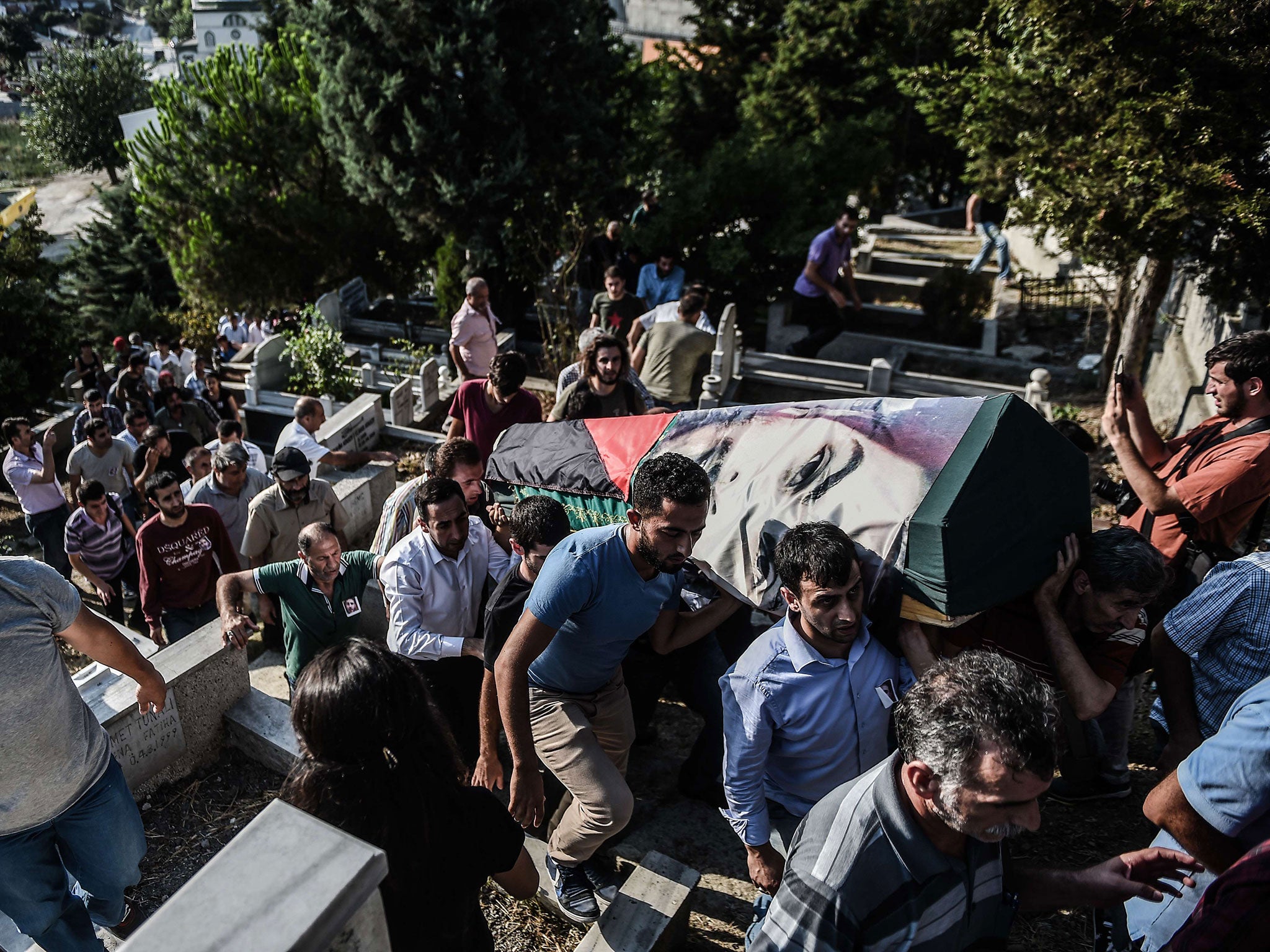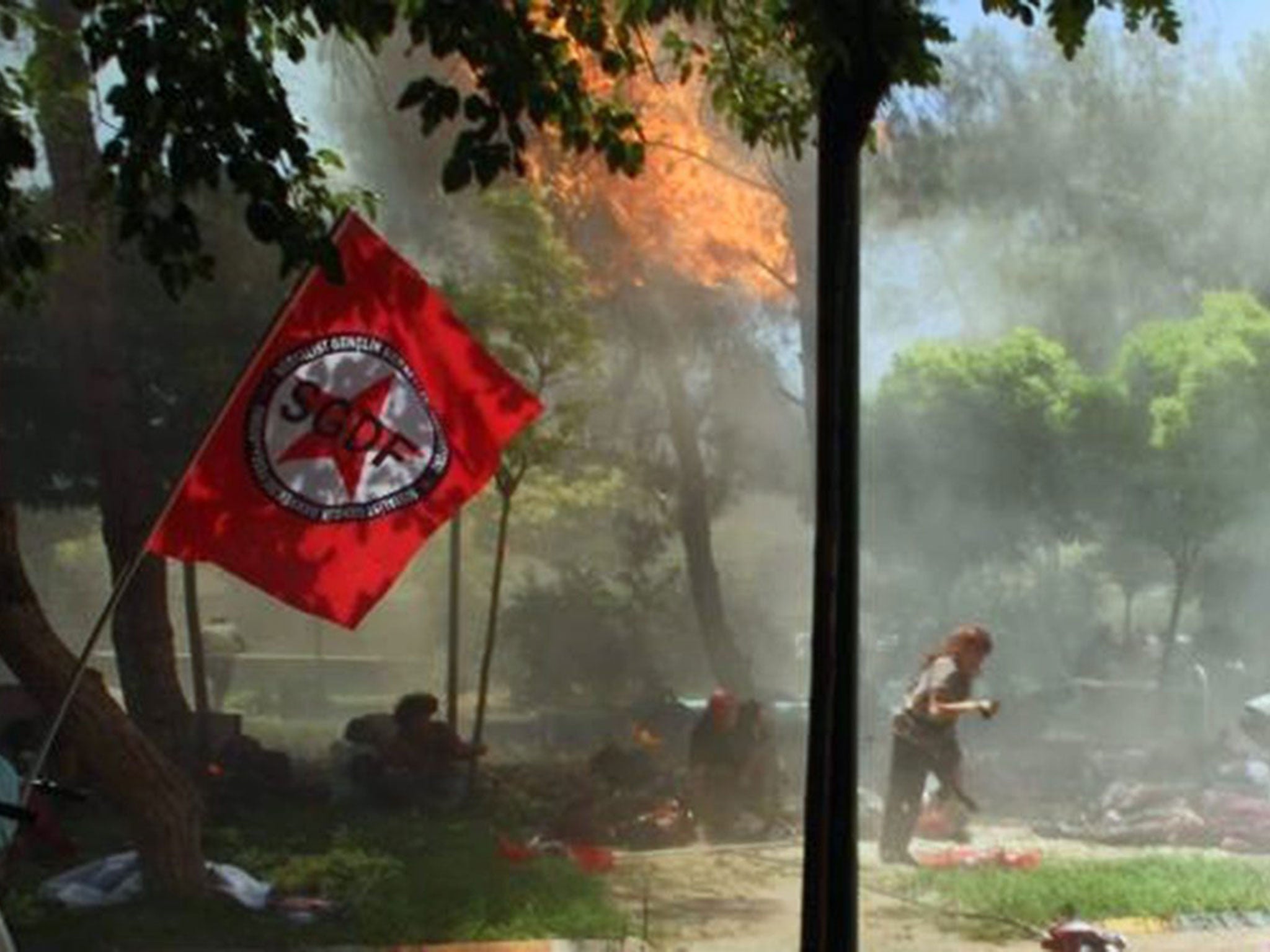Turkey-Kurdish conflict: PKK distracted by Turkish bombs as it continues fight against Isis
The new air strikes threaten instability in Turkey, a broken ceasefire with the Kurdistan Workers’ Party (PKK) and complications amid the war against Isis

Your support helps us to tell the story
From reproductive rights to climate change to Big Tech, The Independent is on the ground when the story is developing. Whether it's investigating the financials of Elon Musk's pro-Trump PAC or producing our latest documentary, 'The A Word', which shines a light on the American women fighting for reproductive rights, we know how important it is to parse out the facts from the messaging.
At such a critical moment in US history, we need reporters on the ground. Your donation allows us to keep sending journalists to speak to both sides of the story.
The Independent is trusted by Americans across the entire political spectrum. And unlike many other quality news outlets, we choose not to lock Americans out of our reporting and analysis with paywalls. We believe quality journalism should be available to everyone, paid for by those who can afford it.
Your support makes all the difference.In a guerrilla camp to the south-west of Irbil in Kurdish Iraq, fighters from the Kurdistan Workers’ Party (PKK) huddle on sofas in a darkened room, some bearing scars from the war with Islamic State (Isis). That morning the Islamists sent a rocket whizzing towards the nearby town of Makhmour, killing one civilian and injuring two.
“[Isis] renews itself all the time and attacks new places,” said Sertaf Aso, the PKK commander for the Makhmour and Kirkuk fronts, speaking to The Independent on Sunday from the camp. He emphasised the danger still posed by the jihadis who are being fought by PKK rebels and the Peshmerga, supported by airstrikes from the US-led coalition that have been hitting Isis targets for a year this weekend.
“They cannot stay in this position. They want to control cities, not small towns,” Commander Aso said.
But the talk among the guerrillas was not of the war with Isis, but of an older foe further north: Turkey. At the end of July an armed wing of the PKK claimed it killed two Turkish police officers in retaliation for the death of more than 30 pro-Kurdish activists in a bomb blast in the Turkish town of Suruc, believed to be carried out by an affiliate of Isis. The PKK accuse the Turkish government of aiding Isis, something that the government denies.

Turkey condemned the attack and began airstrikes on Isis in Syria and the PKK in northern Iraq. More than 100 airstrikes have so far mainly targeted the PKK, as have sweeping arrests of suspected supporters of both groups in Turkey. The PKK has fought a 30-year long insurgency in Turkey for Kurdish rights – tens of thousands have been killed in the conflict – although a ceasefire began two years ago. Now, new violence means more instability in Turkey, a broken ceasefire, and a potential complication for the regional war against Isis.
In Makhmour, 10 miles from the Isis front lines, Commander Aso denies that his guerrillas will be drawn away from the fight. “We know the Turkish government is bombing the mountains but we don’t regret being here because the Kurdistan region is in difficulty, all the time [Isis] attacks and we have to protect Kurdish people.”
He adds that if the bombing against PKK rebel bases continues, fighting will reach “not only north Kurdistan [Turkey’s predominately Kurdish south-east], but all Turkish cities,” he said.
“At first glance, Turkey’s bombardments of the PKK are more a diversion from the war against Isis than a detriment [to it],” said Dov Friedman, an independent Turkey and Kurdistan analyst, adding “Yet, at a fundamental level, Turkey’s bombings are destabilising to the region.”

The United States has defended Turkey’s right to strike the PKK but denied a connection between the strikes and a recent deal allowing the US to use Turkey’s Incirlik airbase to hit Isis in Syria. The US classifies the PKK as a terrorist group, but in Syria provides air support to the Syrian Kurdish fighters, who are closely aligned with the PKK. Both Kurdish groups have proven themselves to be highly effective Isis adversaries, particularly in breaking the Isis siege of thousands of Yazidis on Sinjar mountain in Iraq last summer, but are viewed as existential threats by Turkish President Recep Tayyip Erdogan.
The need for those involved in the fight against Isis to help protect citizens – in both Iraq and Syria – was made clear, when hundreds of Christian families fled a central Syrian town as Isis fighters advanced towards it. Osama Edward, director of the Christian Assyrian Network for Human Rights in Syria, said “hundreds of families” have fled the Christian town of Sadad towards the government-held central city of Homs and the capital, Damascus.
The President of the Kurdistan Region Massoud Barzani meanwhile condemned the Turkish bombardments of the PKK that have killed at least five civilians in northern Iraq, and asked the PKK to leave populated areas. Mr Barzani’s ruling party has close ties to Turkey and is ideologically different to the PKK, but they share a common enemy in Isis.
In the camp south-west of Irbil, Serkeft, a 21-year-old PKK fighter, sits on a light green sofa below a smiling portrait of jailed PKK leader, Abdullah Ocalan. On his arms, hands and legs are red scars from an Isis rocket attack on the front lines near the city of Kirkuk.
“I want to go north to fight the Turkish army when I recover fully,” he said, adding that he would prefer to fight Turkey over Isis because he sees the AKP (President Erdogan’s party) as the real danger. Many Kurds accuse the Turkish government of standing by while the Syrian border town of Kobani endured a gruelling four-month Isis siege. Syrian Kurdish fighters were eventually assisted by coalition airstrikes. The Turkish border with Syria has also been the main route for foreign fighters to cross over, to the consternation of western officials. Turkey has vowed to crack down on its border security.

In Turkey the leader of the pro-Kurdish People’s Democratic Party (HDP) Selahattin Demirtas also called for peace. His party passed a steep 10 per cent bar to win parliamentary seats in the June elections, denying the ruling Justice and Development Party (AKP) its majority. Turkish prosecutors have now opened a case against the HDP leader, which opponents view as an attempt to discredit the party, alongside strikes against the PKK.
On 7 August, three people were reportedly killed in clashes between security forces and Kurdish militants in the Turkish town of Silopi, which lies close to the Iraq and Syrian borders, and two Turkish soldiers were killed in other incidents as violence spread across Turkey’s south-east –bringing the death toll among Turkish security forces since 20 July to at least 21.
Mr Demirtas urged the PKK to “remove its finger from the trigger” and said the Turkish government should launch talks to halt a surge in violence. Speaking in the south-eastern city of Van, he said the government must halt security operations and revive the peace process.
“A coalition may be formed or not but peace is urgent. Mr Davutoglu, we are not requesting this from you. You are obliged to do it,” Demirtas said in comments addressed to Prime Minister Ahmet Davutoglu.
In a show of support for the army, Mr Davutoglu visited a border outpost in Kilis province near where a soldier was killed in clashes with Isis militants on the Syrian side of the border last month.
The US-led coalition conducted 19 airstrikes on Isis targets in Syria and Iraq overnight on 7 August into early on 8 August, some of the thousands they have carried out since last year. However, despite US tactical victories, such as the ability to use Incirlik airbase and getting the Turks to agree to better management of their border with Syria, Mr Friedman said that the “US fails to recognise the extent to which the [Turkish] caretaker government’s campaign is destabilising – to the Kurdistan Region, to the PYD [Syrian Kurdish ruling party], and, most critically, to Turkey itself.”
Subscribe to Independent Premium to bookmark this article
Want to bookmark your favourite articles and stories to read or reference later? Start your Independent Premium subscription today.
Join our commenting forum
Join thought-provoking conversations, follow other Independent readers and see their replies
Comments